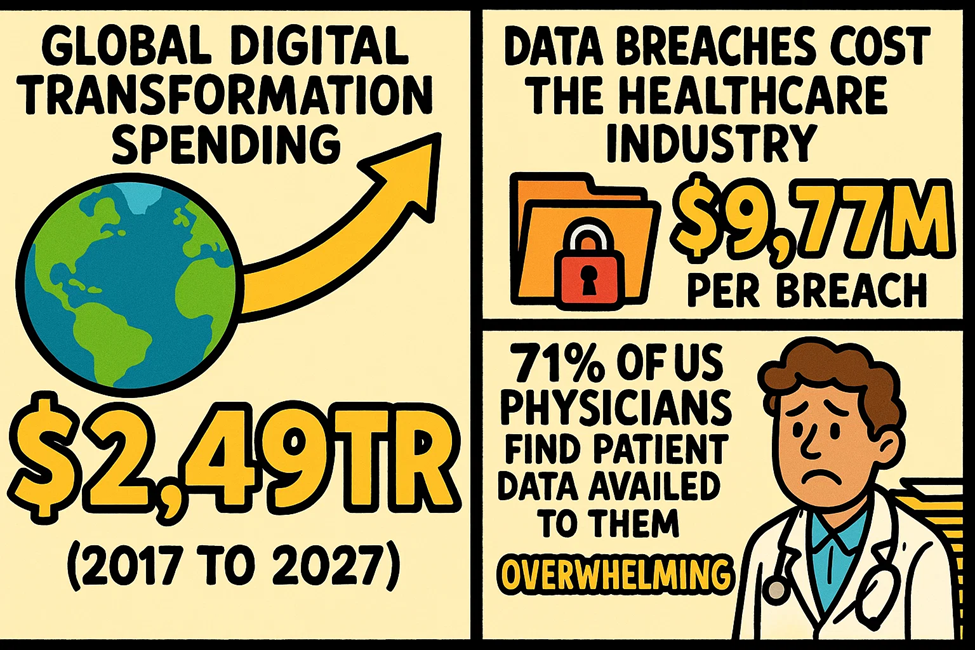
The healthcare industry has faced massive changes over the last few years, mostly driven by a need to manage data better and deliver care faster.
Entrepreneurs in any field can relate. Many of us have felt overwhelmed by information or stretched thin as teams grow.
But looking at healthcare’s playbook, we find real-world solutions that cut through chaos and allow you to scale smartly.
Practical lessons here show how to run leaner operations, empower people with useful tools, and improve outcomes across the board.
If ready to learn, read along for insights you can actually use.
1. Centralized Records Streamline Team Collaboration
Having the data that matters in a central, accessible location makes all the difference for teams under pressure. In healthcare, it means clinicians do not waste time hunting down information or repeating tests just to get what they need. Everyone gets on the same page faster.
Businesses see similar problems when vital details live in spreadsheets or separate inboxes. Consistency drops, work slows down, and errors creep in.
A good example comes from Baptist Health in Louisville, KY. Leadership saw abstractor turnover coming and chose to work with ADN's clinical data abstraction services instead of risking confusion or burnout for their staff. That freed up resources to focus more on performance improvement and earned them a top award for quality.
Case in point, most industries benefit from clear records: projects move forward without hold-ups, coding stays consistent, and research findings become easier to share or build on together.
2. Data Privacy Builds Customer Trust
Sensitive information is always a target, whether it is patient charts or customer details. Tight access controls, multi-factor authentication, and frequent security audits keep the worst headaches away.
Averaging at a staggering 9.77M USD per attack, healthcare stands as the sector with the most expensive data breaches. That cost alone drives stronger protections.
Entrepreneurs can follow suit by building security in from day one and being upfront about how they safeguard user data.
3. Automation Frees Up Critical Human Talent
Staff waste valuable hours on repeat work if manual tasks pile up. In hospitals, automated alerts speed up urgent care while freeing nurses to focus on patients instead of paperwork.
Any founder who automates scheduling or reporting gives skilled workers back time for strategic projects. With automation handling the routine, teams make faster progress and bring more creativity to the table.
4. Measurable Metrics Improve Product/Service Development
Beyond creating great platforms and storing data on the cloud, digitization means tracking real results and learning from the numbers.
A health facility in Chicago wanted to cut patient wait times and boost care satisfaction. Their team tracked:
Average time from arrival to consultation
Rate of follow-up visits
Patient-reported outcomes
After reviewing this data, leadership adjusted scheduling, improved triage workflows, and saw higher satisfaction scores.
Entrepreneurs who measure what matters can adjust faster and deliver better products.
5. Interoperability Boosts Operational Efficiency, Cuts Costs, Unlocks Partnerships
How often do you lose hours copying the same data from one tool to another? Well, you can borrow a leaf from today’s healthcare systems where software tools talk to each other directly.
No need to hunt data manually from multiple different software. Real-time connections cut duplication, reduce errors, and even discover top talent hidden across locations.
With true interoperability in place, it’s easy to form partnerships and scale without bottlenecks.
Endnote
Smart leaders know progress depends on learning from others. Applying these practical lessons from healthcare helps your business, any business sidestep missteps, and move forward with confidence.


 Entrepreneurship
Entrepreneurship

